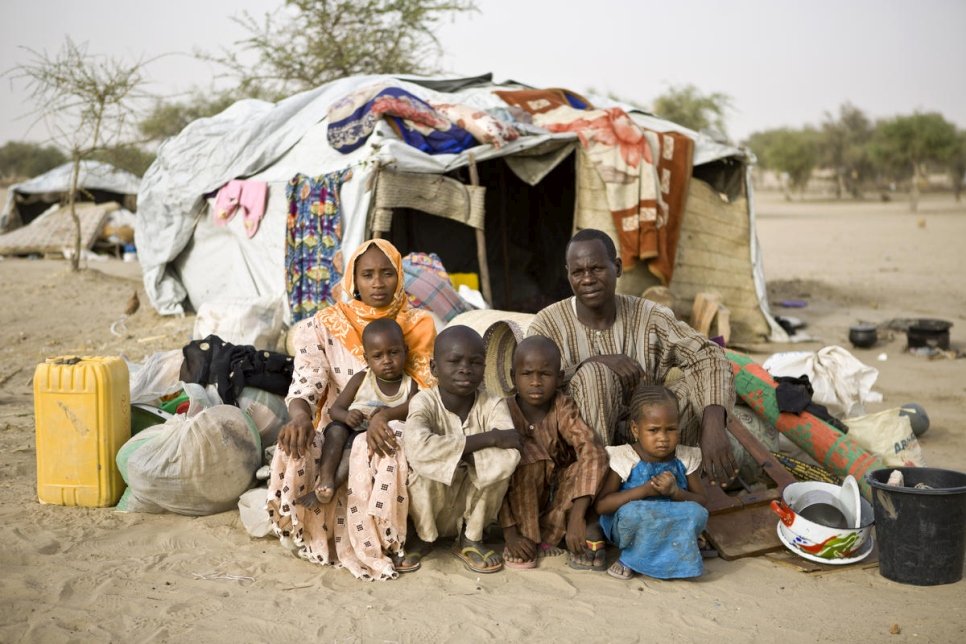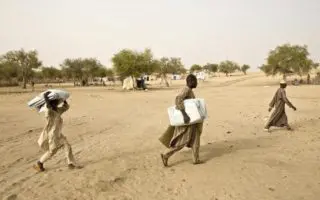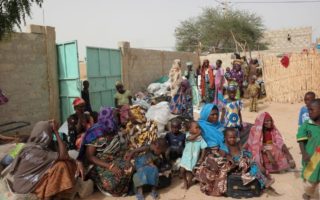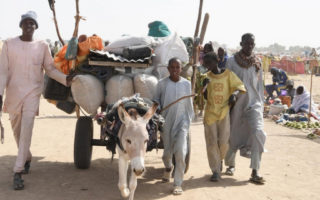
Nigerian refugees in Niger, May 12, 2016. © UNHCR/Hélène Caux
This is a summary of what was said by UNHCR spokesperson Babar Baloch – to whom quoted text may be attributed – at today’s press briefing at the Palais des Nations in Geneva.
Ongoing violence in parts of north-western Nigeria forced an estimated 23,000 people to seek safety and security in Niger last month (April). This takes the total number of refugees fleeing that part of Nigeria to take sanctuary in neighbouring Niger to more than 60,000 since the first influx, in April last year.
Since April 2019, people have fled relentless attacks by armed groups in the Sokoto, Zamfara and Katsina states of Nigeria. Most found refuge in Niger’s Maradi region
Fearing and fleeing the same insecurity in the border areas, an additional 19,000 Niger nationals have become displaced inside their own country.
UNHCR, the UN Refugee Agency, is concerned about deteriorating security inside Nigeria and the risk of armed incursions spilling over into Niger.
The latest influx of refugees, mainly desperate women and children, follows attacks in Nigeria’s Katsina, Sokoto and Zamfara states during the month of April. Several villages in several Local Government Areas were attacked by gunmen. The deadliest attack claimed 47 lives in Kankara, Danmusa and Dusi-ma Local Government Areas in Katsina State and prompted airstrikes by the Nigerian Armed Forces.
Those fleeing speak of extreme violence unleashed against civilians, murders, kidnappings for ransom and pillaging and looting of villages.
Refugees from Nigeria are being allowed to seek protection in Niger despite border closures due to COVID-19. New arrivals are in urgent need of water, food and access to health services, as well as shelter and clothing. Many were barely able to carry anything in the rush to save lives.
Many have also been caught up in the clashes reported being blamed on farmers and herders of different ethnic groups as well as vigilantism. Some 95 per cent of the refugees have come from Nigeria’s Sokoto state, rest from Kano, Zamfara and Katsina states.
We are working closely with authorities in Niger to relocate at least 7,000 refugees to safety, in villages 20 kilometres away from the border, where water, food, shelter, access to health and other essential assistance can be provided. This will also enable to ease the pressure on host communities in border areas, where basic infrastructure and services are lacking.
UNHCR has been present at the onset, and the emergency response focused on protection and life-saving activities, including registration, protection and border monitoring, education, health, shelter as well as water and sanitation.
UNHCR needs to continue biometric registration of refugees to better assess their needs and lead the humanitarian response. Discussions are also ongoing with the authorities to recognize on a prima facie basis the refugees fleeing Nigeria and arriving in the region.
The violence is not directly linked to armed groups operating in the Lake Chad and in the Sahel. It, however, adds Maradi to other areas in Niger struggling with insecurity including in Diffa, Tillaberi and Tahoua, further straining humanitarian actors’ financial resources and their capacity to respond.
For more information on this topic, please contact:
- In Niamey, Jean-Sébastien Josset, josset@unhcr.org, +227 907 669 77
- In Dakar, Romain Desclous, desclous@unhcr.org, +221 786 396 385
- In Geneva, Charlie Yaxley, yaxley@unhcr.org, +41 795 808 702
- In Geneva, Babar Baloch, baloch@unhcr.org, +41 79 513 9549
- In New York, Kathryn Mahoney, mahoney@unhcr.org, +1 347 443 7646
Originally published by UNHCR on 12 mai 2020





